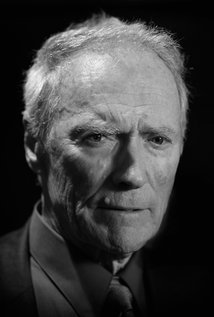Call Me by Your Name (2017)


Content by Tony Macklin. Originally published on December 16, 2017 @ tonymacklin.net.
Every year there's a film that reviewers go bonkers for that leaves me nonplussed and wondering why.
Boyhood (2014) is the poster film for this. I couldn't jibe with the multitude of rave reviews it received. It seemed to me to be vastly overrated. I expected to be killed when I published a negative review of it, but surprisingly I heard from many readers who had similar doubts to mine.
When the Oscar nominations were announced, Boyhood was the odds-on favorite offshore to win Best Picture. [But I put $10 on Birdman, rooted against Boyhood, and won $185.] Birdman eventually became the favorite. And won.
For me, Call Me by Your Name is this year's Boyhood.
Most reviewers love it. I don't.
Call Me by Your Name is about love and identity. It's set in 1983 in Northern Italy, where a Jewish professor and his family - his wife and son - are spending the summer on a villa, as he studies artifacts.
To help him, Professor Perlman (Michael Stuhlbarg) hires a graduate student to assist him in his research. The assistant 24-year old Oliver (31-year old Armie Hammer) joins the family. He and 17-year old Elio Perlman (Timothee Chalamet) become interested in each other, and they hesitantly embark on a romantic relationship.
I don't care if they're gay, bi-sexual, or heterosexual, I just want them to be interesting. Elio reads and plays the piano well, and Oliver wanders around. They are inchoate, shallow characters. Elio is callow, and Oliver is self-absorbed (almost an Ugly American, despite his good looks).
Oliver has some knowledge about language and antiquities. But he basically is a bland cipher. The stuff that dreams are made of?
Chalamet doesn't show any memorable acting ability until the credits. That's a long time to wait. Hammer could be getting a bit typecast as an ambiguous hunk- he played Clyde Tolson in Clint Eastwood's J. Edgar (2011).
I'm very aware that each film has a target audience. Does it deliver? And does it hook a wider audience? Call Me by Your Name is liberating for its target audience. And it seems to have struck a chord with others as well. But I suspect that the reviews may mislead some mainstream viewers. "Swoon" is a concept one finds in many reviews. But swoon may become gag for them.
Director Luci Guadagnino has a strong visual sense. He uses space and distance effectively - showing literal and symbolic separation. He creates a feeling of sumptuousness and form.
The screenplay by James Ivory from a novel by Andre Ariman offers some problems when it becomes explanatory at the end. In labored dialogue Elio's father tells his son that Oliver is "good." He has to tell us, because there's little evidence of it.
And the father also talks about the joy his son had with Oliver, and he himself reveals that he once compromised and therefore didn't experience it. He tells us how the heart dies. [He fails to explain how our patience does.]
Call Me by Your Name is dedicated at the end to the late actor Bill Paxton, who died on February 25, 2017. Paxton's life-time agent was Brian Swardstrom, also the agent for Timothee Chalamet. Swardstrom is married to Peter Spears, who produced Call Me by Your Name. Agent Swardstrom was Paxton's best friend.
Most reviewers think Call Me by Your Name is a peach of a film. [But if you see the letters differently, it may be "cheap."]
It's up to you.













